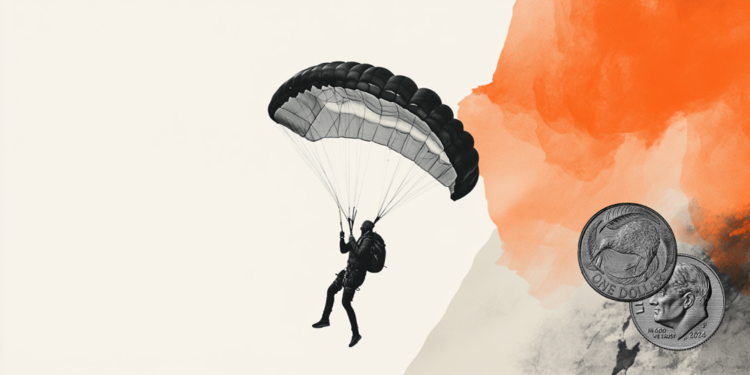Russian President Vladimir Putin had a plan to take Ukraine quickly. These plans dissolved from the early days of the Russian invasion with the failure to capture Kiev.
Putin’s troubles have only deepened in recent days as a growing Ukrainian counter-offensive has conquered key pockets of Russian-controlled territory, such as the shipping city of Lyman.
The timing couldn’t be worse. Putin lost Lyman as he publicly declared that the Donetsk region — in which Lyman is located — has now been annexed by Russia.
At home, Putin also faces mounting criticism from Russians, both left and right, who are taking considerable risks given the draconian penalties they could face for speaking out against his “special military operation” in Ukraine.
With even his allies expressing concern and hundreds of thousands of citizens fleeing partial mobilization, an increasingly isolated Putin has returned to rambling speeches, offering his distorted view of history.
(Indeed, his revisionist account sets out his logic for the war in Ukraine, which he claims has historically always been part of Russia — even though Ukraine declared its independence from the Soviet Union more than three decades ago.)
But Putin — a zealous student of Russian history — is certainly aware that defeat in a foreign war has toppled some of his predecessors.
When the Soviets invaded Afghanistan in December 1979, they planned to install a puppet government and get out of the country as quickly as possible, as explained in a recent authoritative book on the Soviet invasion of Afghanistan, “Afghan Crucible” by historian Elisabeth Leake.
Leake writes that “the Soviets’ intention was rapid regime change”, which “was not meant to be a prolonged military encounter”.
That playbook didn’t work for the Soviets in Afghanistan during the 1980s, just as it doesn’t work for Putin in Ukraine today.
Beyond the battlefield
During the war against the Soviets in Afghanistan, the US was initially reluctant to increase its support for the Afghan resistance, fearing a wider conflict with the Soviet Union.
It took until 1986 for the CIA to arm the Afghans with highly effective Stinger anti-aircraft missiles, which ended the Soviets’ total air superiority, forcing them to withdraw from Afghanistan three years later.
In 2022, American weapons are again playing a decisive role in Russian battlefield fortunes. At the start of the war in Ukraine, the US was also wary of deeper involvement, fearing a wider conflict with the Russians.
But the US put those fears to rest relatively quickly, and American-supplied Javelin anti-tank missiles and High Mobility Rocket Artillery Systems (HIMARS) GPS-guided missiles helped the Ukrainians react against the Russians.
Putin is also certainly aware that the collapse of the Soviet Union in 1991 was accelerated by the withdrawal of Soviet forces from Afghanistan two years earlier.
Looking further back into the history books, he should also know that the Russian loss in the Russo-Japanese War in 1905 weakened the Romanov monarchy. Tsar Nicholas II’s irresponsible leadership during World War I precipitated the Russian Revolution in 1917. Subsequently, much of the Romanov family was killed by a Bolshevik firing squad.
Putin, understandably, does not want to go the way of the Soviets or the Romanovs. Which may explain his recent desperate moves: the deployment of an additional 300,000 troops — a move he had long sought to avoid — and his noise of nuclear weapons.
The myth of the “genius” breaks down
On February 22 — just two days before Russia’s invasion — former US President Donald Trump, who has always fawned over Putin, publicly said the Russian autocrat was “genius” and “smart” for declaring two eastern regions independent. Ukraine and move its troops there in a prelude to a full-scale invasion.
Putin saw the war in Ukraine as the key to his dream of making Russia great again. Instead, Russia can no longer pretend to be a great power, as it is incapable of defeating an enemy within its own borders.
With more than seven months of war, the myth of the “genius” has been shattered. During the past two weeks, at least 200,000 Russian men have voted with their feet to evade Putin’s partial mobilization order. They understand — despite the Herculean efforts of Putin’s propagandists — that this war is a bloodbath that Russia is losing.
Putin saw the war in Ukraine as the key to his dream of making Russia great again.
Peter Bergen
Freedman writes that Putin is “a tragic example of how an individual’s illusions and illusions can shape events without any critical challenge. Autocrats who place their cronies in key positions control the media to drive out dissenting voices.”
Putin’s gamble could lead to a third dissolution of the Russian empire, which took place first in 1917 when World War I ended, and again in 1991 after the fall of the Soviet Union.
It could happen once again when Putin’s dream of taking Ukraine seems to be coming to an inglorious end.
Making Russia weak again.
Source: CNN Brasil
I’m James Harper, a highly experienced and accomplished news writer for World Stock Market. I have been writing in the Politics section of the website for over five years, providing readers with up-to-date and insightful information about current events in politics. My work is widely read and respected by many industry professionals as well as laymen.







